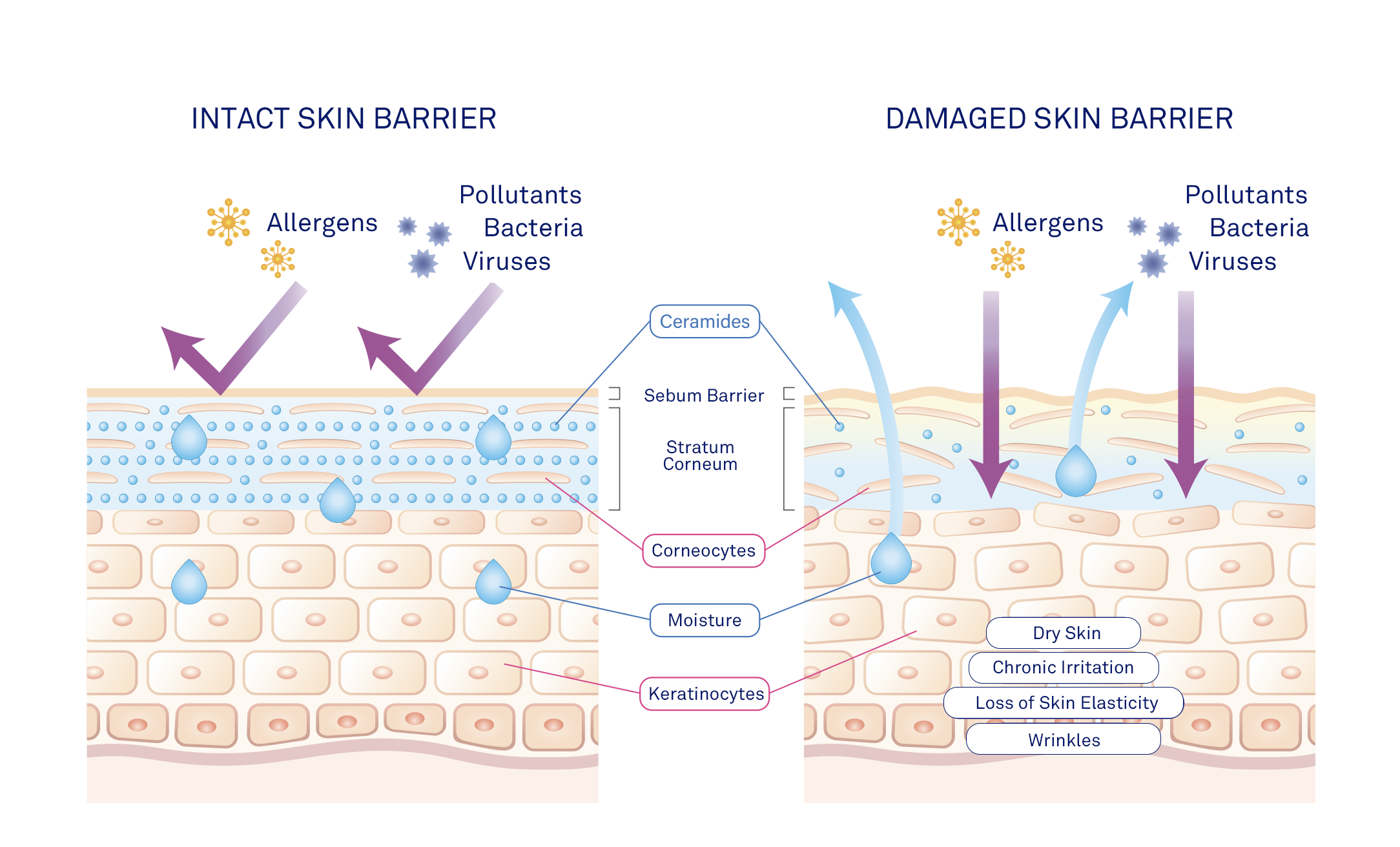As the air turns crisp and the temperature drops, our skin often feels the brunt of the seasonal change. Winter can strip your skin of its natural moisture, leaving it dry, irritated, and in need of extra care. But fear not—your winter skincare guide is here to help you keep your skin nourished, hydrated, and radiant all season long.
Why Winter Challenges Your Skin
The cold months bring unique challenges to skin health. Here's why:
- Dry Air: Both the chilly outdoor air and indoor heating reduce humidity, making your skin lose moisture faster.
- Temperature Extremes: Moving between the freezing outdoors and warm indoors can disrupt your skin's balance, leading to irritation and sensitivity.
- Weakened Skin Barrier: Harsh winds and reduced hydration levels can compromise your skin’s natural protective barrier, making it prone to redness, flaking, and discomfort.
Understanding these factors helps us tailor our skincare to meet winter’s demands.
Essential Winter Skincare Tips
-
Switch to a Gentle Cleanser Winter is the time to retire those foaming cleansers that leave your skin feeling squeaky clean but stripped. Opt for a gentle, hydrating cleanser that cleans without compromising your skin’s natural oils.
-
Moisturize, Moisturize, Moisturize The type of moisturizer you use matters. Winter calls for rich, cream-based moisturizers packed with barrier-strengthening ingredients like ceramides, shea butter, and squalane. Apply it immediately after cleansing to lock in hydration.
-
Exfoliate Carefully While exfoliation is key to removing dead skin cells, overdoing it can harm your skin’s barrier during winter. Stick to gentle exfoliants, such as lactic acid or enzyme-based scrubs, and limit exfoliation to once or twice a week.
-
Invest in a Humidifier Indoor heating sucks moisture from the air, and a humidifier can help restore it. Keeping the air in your home or office hydrated will work wonders for your skin.
-
Sun Protection Still Matters Winter may feel less sunny, but UV rays don’t take a holiday. Snow can reflect up to 80% of UV rays, making sunscreen essential year-round. Apply a broad-spectrum SPF 30 or higher daily.
-
Don’t Forget Your Lips Your lips are often the first to feel winter’s wrath. Keep them soft and hydrated with a nourishing lip balm containing beeswax, shea butter, or SPF for added protection.
Lifestyle Tips for Winter Skin
Your skincare routine is only part of the solution. Small lifestyle changes can also make a big difference in maintaining healthy skin during winter:
One of the most common winter skincare mistakes is over-exfoliating. While it may seem like a quick fix for flaky skin, excessive exfoliation can strip the skin of its natural moisture, exacerbating dryness and sensitivity. Instead, opt for gentle exfoliants like lactic acid or enzymes and limit their use to once or twice a week. Another oversight is neglecting your lips, which are particularly prone to dryness during colder months. Protect and hydrate them with a lip balm containing SPF during the day and a thick balm or ointment at night. It's also important not to ignore the rest of your body while focusing on facial care. Using a rich, nourishing body lotion daily can prevent dryness and itchiness, keeping your skin soft and healthy from head to toe.
The key to thriving skin in winter lies in the right ingredients. Hyaluronic acid is a must-have for its ability to draw water into the skin, delivering deep hydration. Ceramides strengthen the skin barrier, locking in moisture and protecting against environmental stressors. Squalane mimics your skin’s natural oils, providing an extra layer of nourishment, while shea butter deeply hydrates and soothes dryness or irritation. Niacinamide is another powerhouse ingredient, calming inflammation and supporting barrier repair to keep your skin balanced and resilient throughout the season.
When to Seek Professional Help
If your skin feels persistently dry, irritated, or flaky despite your best efforts, it may be time to consult a dermatologist or skincare professional. Treatments like hydrating facials, chemical peels, or laser therapy can address winter-specific concerns and leave your skin looking refreshed.

